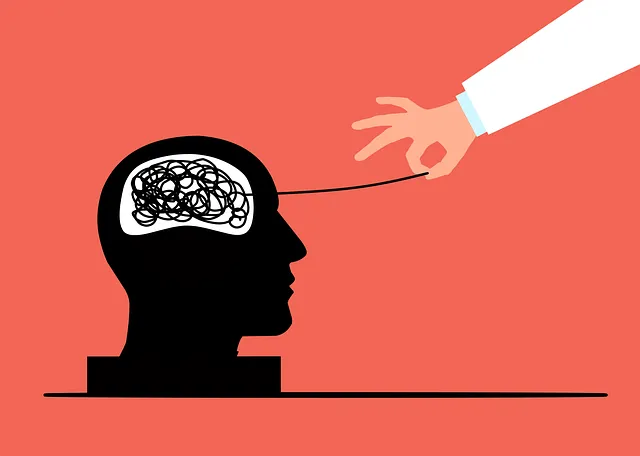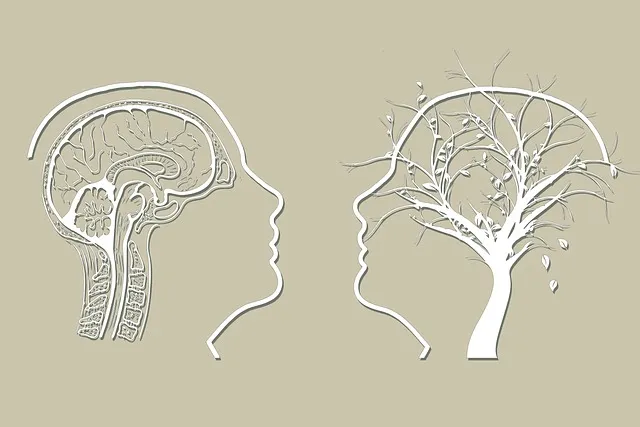Anxiety significantly impacts daily life, but Denver Kaiser Permanente's holistic mental health services provide an effective solution. They offer Cognitive Behavioral Therapy (CBT), a powerful evidence-based approach that identifies and changes negative thought patterns. Additionally, mindfulness, meditation, physical activity, and nutrition guidance are integrated into their comprehensive care. Through individual therapy, group support, and self-awareness exercises, Denver Kaiser Permanente equips individuals with tools to manage anxiety, reduce stress, and improve overall well-being.
Anxiety is a common yet powerful force that can disrupt daily life. This article explores effective management techniques to reclaim your calm. We delve into understanding anxiety, from identifying triggers and symptoms to uncovering the power of Cognitive Behavioral Therapy (CBT). Discover mindfulness practices and the impact of physical activity and nutrition on mental well-being. Learn about leveraging Denver Kaiser Permanente mental health services for comprehensive support. Embrace these strategies to navigate anxiety and enhance your overall resilience.
- Understanding Anxiety: Identifying Triggers and Symptoms
- Cognitive Behavioral Therapy (CBT): A Powerful Tool for Managing Anxiety
- Mindfulness and Meditation: Finding Calm in the Midst of Anxiety
- Physical Activity and Nutrition: The Role of Exercise and Diet in Anxiety Reduction
- Support Systems and Professional Help: Leveraging Denver Kaiser Permanente Mental Health Services
Understanding Anxiety: Identifying Triggers and Symptoms

Anxiety is a common mental health condition that can significantly impact daily life and overall well-being. Understanding anxiety involves recognizing its triggers and symptoms, which vary from person to person. Identifying personal triggers can be a powerful tool for managing anxiety effectively. These may include stressful situations, specific environments, certain behaviors, or even thoughts and memories. Common physical symptoms of anxiety include rapid heartbeat, sweating, trembling, and difficulty breathing. Recognizing these signs early can help individuals take proactive steps to manage their anxiety.
Denver Kaiser Permanente mental health services emphasize the importance of a holistic approach to addressing anxiety. This includes not only individual therapy but also group support, stress management techniques, and cultural sensitivity in mental healthcare practice. By acknowledging the unique cultural backgrounds and experiences of patients, these services aim to reduce the stigma associated with mental illness while fostering an environment where individuals feel empowered to take control of their mental health.
Cognitive Behavioral Therapy (CBT): A Powerful Tool for Managing Anxiety

Cognitive Behavioral Therapy (CBT) is a highly effective and evidence-based approach to managing anxiety, offered by Denver Kaiser Permanente mental health services. This therapy focuses on identifying and changing negative thought patterns and behaviors that contribute to anxiety disorders. By understanding how thoughts, feelings, and actions are interconnected, individuals can gain valuable insights into their anxiety triggers and develop healthier coping mechanisms.
The Mind Over Matter Principles, explored through CBT, empower individuals to take control of their mental wellness. Through structured sessions led by experienced therapists, participants learn to challenge distorted thinking, replace negative self-talk with positive affirmations, and engage in gradual exposure exercises to confront feared situations. This process not only reduces symptoms of anxiety but also fosters resilience, enabling individuals to navigate stressors with greater ease. Additionally, Denver Kaiser Permanente’s Mental Wellness Podcast Series Production and Stress Management Workshops Organization can supplement CBT by providing ongoing resources and support for maintaining mental wellness.
Mindfulness and Meditation: Finding Calm in the Midst of Anxiety

Mindfulness and meditation have emerged as powerful tools in the arsenal of anxiety management. These practices encourage individuals to focus on the present moment, calming the mind and reducing the intensity of anxious thoughts. By cultivating awareness of one’s breath, sensations, and surroundings, people can interrupt the cycle of worry and fear that often accompanies anxiety disorders. The Denver Kaiser Permanente mental health services recognize the potential of mindfulness as a therapeutic approach, offering programs that incorporate these techniques to help individuals regain control over their mental well-being.
Regular self-awareness exercises, such as meditation, can be integrated into daily routines to manage stress and anxiety effectively. This involves observing thoughts without judgment, which helps to prevent reactive behaviors often associated with heightened anxiety. Conflict resolution techniques, which promote understanding and peace of mind, are also valuable components of a holistic approach to mental health. Additionally, community outreach program implementations that emphasize mindfulness workshops can foster support networks where individuals share strategies for coping with anxiety, creating a sense of belonging and collective resilience.
Physical Activity and Nutrition: The Role of Exercise and Diet in Anxiety Reduction

Physical activity and nutrition play a significant role in anxiety management, often overlooked yet powerful tools alongside Denver Kaiser Permanente mental health services. Regular exercise acts as an effective stress reduction method, releasing endorphins that can alleviate symptoms of anxiety and promote positive thinking. Even moderate physical activity, such as walking or yoga, has been shown to improve mood and overall mental well-being. Incorporating self-awareness exercises during workouts can further enhance these benefits, allowing individuals to connect with their bodies and minds in a calming way.
Nutrition also contributes to anxiety reduction significantly. A balanced diet that includes whole foods rich in vitamins, minerals, and antioxidants supports brain health and overall function. Foods high in omega-3 fatty acids, like salmon, have been linked to lower anxiety levels. Staying hydrated and limiting caffeine and sugar intake can also help manage symptoms, as these substances can exacerbate stress and anxiety. By prioritizing both physical activity and nutrition, individuals not only complement their mental health treatments but also empower themselves with sustainable self-care practices for long-term well-being.
Support Systems and Professional Help: Leveraging Denver Kaiser Permanente Mental Health Services

Support Systems and Professional Help play a pivotal role in managing anxiety effectively. Denver Kaiser Permanente Mental Health Services stands as a beacon of hope for individuals seeking guidance and treatment. Their comprehensive programs offer a nurturing environment where one can tap into their inner strength and develop self-awareness exercises tailored to unique needs.
Through personalized therapy sessions, professionals provide invaluable Denver Kaiser Permanente mental health services, empowering individuals to take control of their mental wellness. This includes evidence-based practices and mental wellness journaling exercise guidance that help in tracking progress and cultivating a deeper understanding of one’s thoughts and feelings. By combining these strategies with a supportive network, individuals can navigate anxiety with resilience and grace.
Anxiety management is a holistic journey, and combining various techniques offers the best path to long-term well-being. From understanding triggers through identifying symptoms to leveraging evidence-based therapies like CBT, each strategy plays a vital role. Incorporating mindfulness practices, maintaining an active lifestyle, and prioritizing nutrition further empower individuals to manage anxiety effectively. For those seeking comprehensive support, Denver Kaiser Permanente mental health services provide expert guidance and resources, offering a network of care tailored to individual needs. By embracing these diverse approaches, one can navigate and overcome anxiety, fostering a calmer and more resilient mindset.






